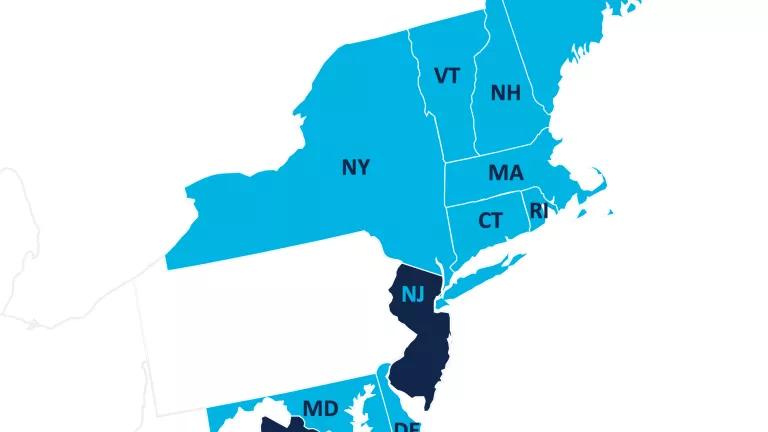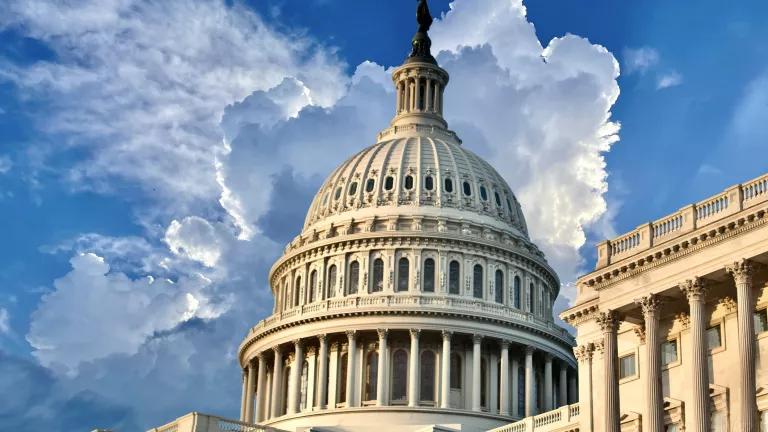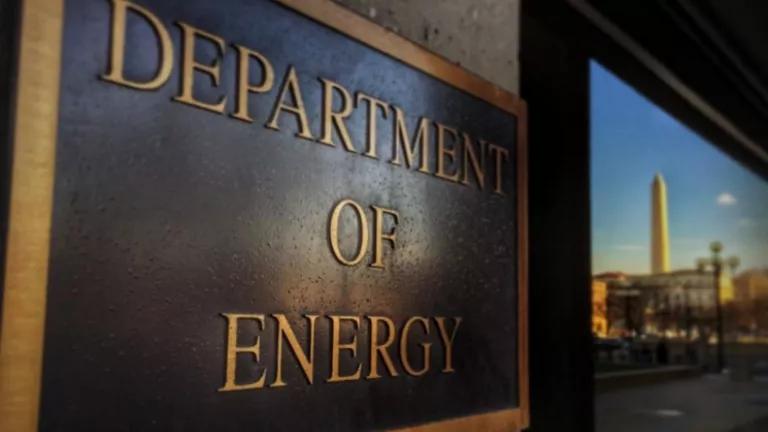RGGI Shows Tackling Climate Change Pays Major Dividends

The Regional Greenhouse Gas Initiative, more commonly known as RGGI—a multi-state program that since 2009 has helped cut carbon pollution from power plants in half in nine Northeast and Mid-Atlantic states—continues to provide a gold standard for tackling climate change. A report released today by economic experts at the Analysis Group concludes the market-based RGGI has not only been a major climate success, but in the last three years alone has helped grow participating states’ economies by $1.4 billion while adding 14,500 years of full-time employment in the region.
For those who have followed RGGI over the last decade, this latest confirmation of the program’s success comes as no surprise. Previous assessments by the Analysis Group and others of RGGI’s earlier years similarly have concluded that RGGI has delivered on its promise of both economic and environmental progress.
Given this history, it’s also no surprise that Connecticut, Delaware, Maine, Maryland, Massachusetts, New Hampshire, New York, Rhode Island, and Vermont last year doubled down on the program—committing to cut carbon pollution by at least 30 percent more through 2030. A modeling analysis for the states projects these reductions will further grow the region’s economy by $3.95 billion and add 34,000 more years of full-time employment in the coming years. As more states, such as New Jersey and Virginia move to join the RGGI market, they too can expect to benefit.
With states in the region increasingly looking to tackle emissions from the transportation sector next, RGGI provides a powerful example of what they could accomplish by working together.
RGGI’s Many Benefits
Including the findings from today’s report, across the region RGGI has already contributed at least:
- $4.3 billion in regional economic growth,
- 44,700 years of additional full-time employment, and
- $5.7 billion in public health benefits, including preventing at least 8,200 asthma attacks, 39,000 lost workdays, and 300 premature deaths, by cutting dangerous air pollutants like soot and smog alongside carbon,
- All while saving customers an estimated $773 million on their energy bills (with billions more expected) thanks to energy efficiency and renewable energy investments funded under the program.
Far from being an economic weight on the region, RGGI’s contributions to a clean energy transition have been an economic boon. Since the program launched, electricity prices in the region have fallen even as customers in non-RGGI states have seen higher prices, and the RGGI states’ economies have grown faster than the rest of the country.
And the above benefits don’t even include the climate benefits of RGGI, which are also significant. Since RGGI went into effect, the nine states have cut carbon pollution by 51 percent, making important progress toward the 80 percent reduction in greenhouse gas emissions that scientists say we must reach by 2050 to avoid the most dangerous effects of climate change.
Building on RGGI’s Success to Tackle Transportation
We can’t solve climate change in the power sector alone, however. The 80 percent by 2050 target is for all greenhouse gas emissions, which means we also need to cut pollution in other areas, most significantly from transportation.
In fact, the RGGI states have made so much progress in the power sector that transportation is now by far the region’s largest source of carbon pollution. Transportation emissions are more than twice as high as emissions from power plants in the RGGI states.
Recognizing this challenge, last week, seven Northeast and Mid-Atlantic states, including most of the RGGI states, and Washington, D.C. held the first in a series of regional public listening sessions that are planned for 2018 to discuss ways to clean up and modernize transportation. Additional listening sessions will take place across the region in the coming weeks.
Transitioning to a clean transportation system will be a major undertaking, but is something we can and must accomplish. Among its many benefits, a clean and modern transportation system could also make people’s commutes easier, lower traffic congestion, provide more accessible and equitable transportation options, improve public health, create new jobs, and generate more economic growth.
As RGGI shows, by tackling this problem together, Northeast and Mid-Atlantic states can achieve their climate goals while unlocking a host of other benefits. The only question now is: what are we waiting for?



